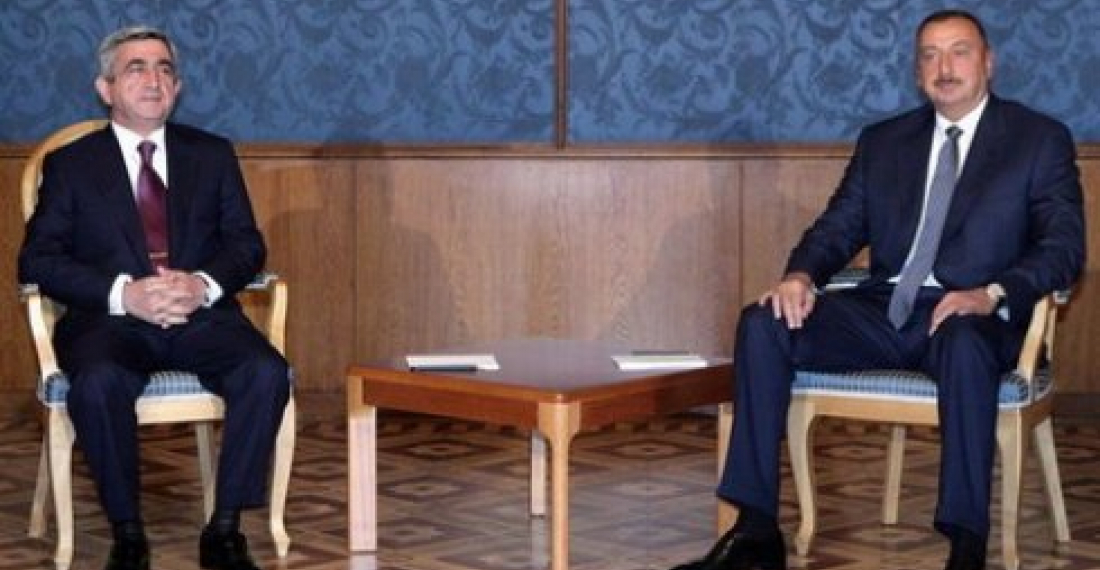The Director of LINKS (Dialogue, Analysis and Research), Dennis Sammut spoke to the Azerbaijan news portal 1news.az about the chances of war and peace in Karabakh. We publish the full text of the interview.
What do you expect from the meeting in Hamburg? Would it mean any positive or negative step in NK process or just another expressing of commitments?
2016 has been a rather eventful year in the context of the Karabakh conflict and conflict settlement process. First there was a sharp escalation of violence on the line of contact leading to the April events. This was followed by intensive diplomatic dialogue, including two meetings between the Presidents of Armenia and Azerbaijan in Vienna and St Petersburg. Russia was particularly active this year, pushing the so called "Lavrov ideas". On the other hand, Germany had the chairmanship of the OSCE in 2016 and German diplomacy also tried to explore some new approaches to resolving the conflict.
As usual, the Foreign Ministers of the 57 member states of the OSCE will meet in the last month of the year, this time in Hamburg, to review the overall security situation in the OSCE area. It is expected that the foreign ministers of the three Minsk group co-chair countries will meet with the foreign ministers of Armenia and Azerbaijan on the margins of the OSCE Ministerial in a 3 + 2 format. Whilst the format is agreed there is still not much optimism that the substance of these discussions can lead to a breakthrough in the negotiations. At best in Hamburg we can expect some follow up on what has already been agreed in Vienna and St Petersburg, and it will become clear if another meeting between the two presidents is possible in the near future. At this point I feel a meeting between the Presidents will only happen if the Russians push enough for it.
In a recent analytical piece on CommonSpace.eu you write that there are all the conditions for another violent flare-up in Nagorno Karabakh, even larger than the war in April. Please, shortly describe what makes you think so, and what can prevent that kind of scenario?
The line of contact between Armenian and Azerbaijani forces in the Nagorno-Karabakh conflict zone is presently one of the hottest spots in Europe, with high risk of escalating violence. Both sides have the means to inflict heavy blows on the other using modern weaponary that they have recently acquired at great expense. In the absence of a meaningful peace process the chance of an upsurge in violence is at the moment very high. There are frustrations on both sides with the current status quo, and both sides may see some advantage in conducting a lightning military strike, although the danger this will spiral into bigger hostilities is evident to everyone.
The sides therefore need to push ahead with the negotiations in order to try to find a lasting and peaceful solution. However I feel that for this to happen there needs to be a new approach, both by the mediators, as well as by the sides in the conflict. This requires a change in the dynamic of the peace process, including formalizing it with a fixed time table, widening the circle of those involved in the negotiations to bring the discussions to a more practical level, an intensification of people to people contacts in order to prepare public opinion, and an intelligent and time tabled programme of military and civilian confidence building measures running in tandem with the negotiations. There are some risks in implementing such an approach, but the risk of doing nothing is even higher.
Do you link any hopes in NK peace process with the new figure at the position of the President of the United States?
I do not see the new US administration taking a position on the Karabakh issue that is very different from the current one. What remains to be seen is whether the Trump White House will want to engage more with the Caucasus region, or less. In any case it will take some time - perhaps one or two years - until such policies come into play, and the region does not have the luxury to wait
source: commonspace.eu. This is the full text of the interview of Dennis Sammut with 1 news.az on 1 December 2016. A shortened version of the interview in Russian) was published by 1 news.az on 2 december 2016. You can read it here.
photo: The presidents of Armenia and Azerbaijan at one of their earlier meetings (archive picture)







